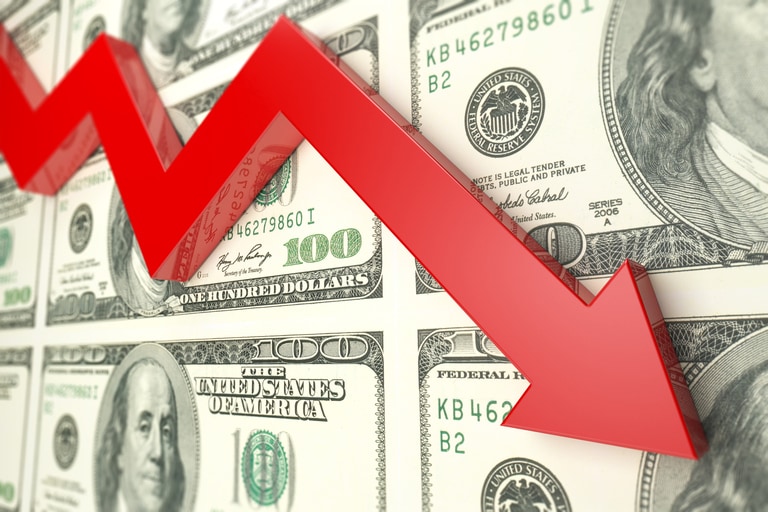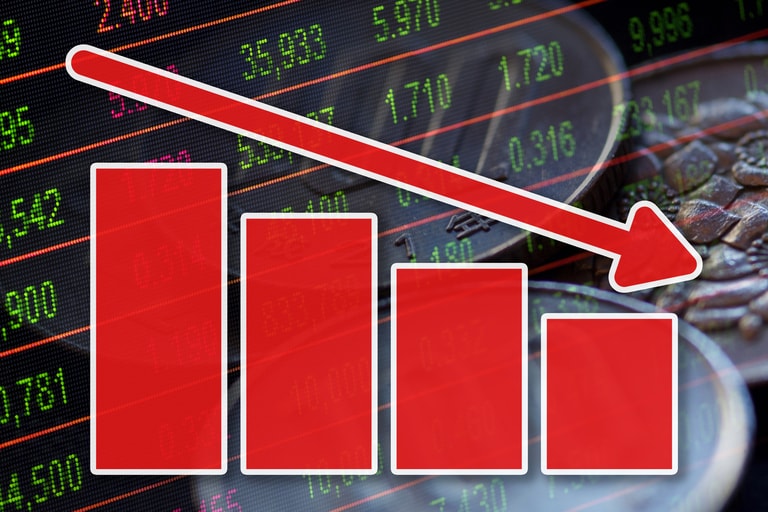European markets have ended the week sharply lower as a bond market rout upended sentiment, sending the Euro Stoxx 50 and the DAX to their lowest levels this year, taking out the July lows in the process.
Europe
While it would be tempting to blame some weak flash PMIs, the tipping point appears to have been the announcement of the latest UK fiscal stimulus plan, which appears to be being treated as a high-risk leap of faith, prompting sharp spikes in yields over concern about surging inflation and recession risk.
The resultant surge in yields is no better illustrated than in the UK gilt market which has seen the UK 5-year gilt yield surge by over 50bps in a record one day move to over 4%.
With an Italian election also looming at the weekend, and a victory expected for the Italian far right, led by Giorgia Meloni, investors are fleeing risky assets across the board.
The FTSE100 has also slipped back sharply, dropping below 7,000 for the first time in over 6 months, with all sectors except healthcare in the red, and energy and basic resources leading the losses, over rising global recession risk.
Plunging metals, as well as oil and gas prices is seeing weakness in the likes of Glencore, Anglo American, Harbour Energy, BP, and Shell.
UK house builders which initially popped higher on the back of the stamp duty tax reforms soon gave up those gains over concerns that spiralling inflation would slow demand for mortgages and housing.
The best performers have been Haleon and GSK, while Smiths Group is also doing well after reporting full year results that saw revenues come in ahead of expectations, rising 3.8% to £2.56bn.
Profit for the year rose by 263% to just over £1bn, although most of that was down to discontinued operations. When that was stripped away operating profits were lower at £117m, however the company was optimistic about the outlook saying they expected to deliver 4% to 4.5% organic revenue growth in FY23.
US
US markets have taken their cues from today’s sell-off in European equity and bond market sell-off, opening sharply lower, and on course for the second weekly loss in a row. On a more positive note, unlike in Europe, US markets are still above their June lows, however that may not last long if bond markets continue to sell off.
Weakness in the energy sector is acting as the major drag, as US oil prices fall below $80 a barrel, with Exxon and Chevron leading the fallers.
Boeing shares have come under pressure after settling its civil charges with the SEC over charges it misled investors over the 737 MAX, agreeing a sum of $200m.
Last week FedEx shares fell sharply after the logistics company issued a profits warning, along with announcing a big miss in revenues and profits. Q1 revenues came in at $23.2bn, below expectations, with the company saying it expects Q2 revenues to come in 4% lower at $23.75bn. Today the company went further and announced it would be embarking on a plan to cut costs and raise prices, as it looks to make $2.7bn in savings. The plans are said to include cutting flights as well as closing underperforming offices, with markets giving them a cool response, as the shares slid lower.
FX
The US dollar has continued to advance, marking another 20 year high, helped by an improvement in the latest flash PMIs, while the pound has sunk like a stone in the wake of this morning’s fiscal announcement by the UK Chancellor of the Exchequer.
Against the US dollar, the pound has fallen below 1.1000, marking yet another 37-year low, and its worst one day fall since March 2020, with currency and bond markets exhibiting their doubts about the UK government's new fiscal strategy, against a backdrop of rising inflation. While the decline in the pound this week is stunning it is still just behind that of the Swedish Krona, while year to date it is behind that of the Japanese yen and Swedish krona.
The mood around the pound was already fragile after another record low for consumer confidence in September earlier in the day, although this should be caveated by the fact that a lot of this reading may well have been influenced by the lack of detail around the energy price bailout. Now we have that we might see an improvement in October, although if today’s market rout is any guide that might be wishful thinking.
Nonetheless today’s weakness wasn’t so much about the caps on energy prices for business and consumers, it’s hard to argue the case for doing nothing in this regard and given the current environment the government had little choice.
The sell-off in bonds and gilts came because of the various tax cuts that were announced in conjunction with the new fiscal package, as doubts about how they might be paid for came into the open, along with concerns that they might add fuel to the inflationary fire.
It is this extra borrowing that appears to be spooking bond markets, and crashing the pound, and while the Chancellor was at pains to insist that this would help to kick start a plan to achieve a 2.5% GDP target, markets aren’t buying it, with moves in UK gilt yields also prompting contagion into bond markets in Europe and the US.
Commodities
Concerns over surging inflation have prompted a sharp selloff in crude oil with US prices slipping below $80 a barrel, and their lowest levels since January, on concern that rising yields and more aggressive central banks will trigger a global recession.
Brent crude prices have also come under pressure for the same reason, outweighing concerns over supply, and an EU energy price cap.
The surge in yields, along with a stronger US dollar has unsurprisingly clobbered the gold price, clubbing it back down to its lowest levels in over 2 years, against a backdrop of fears of further aggressive rate moves from the Federal Reserve.
UK natural gas prices are also sharply lower, falling to 3-month lows.
CMC Markets erbjuder sin tjänst som ”execution only”. Detta material (antingen uttryckt eller inte) är endast för allmän information och tar inte hänsyn till dina personliga omständigheter eller mål. Ingenting i detta material är (eller bör anses vara) finansiella, investeringar eller andra råd som beroende bör läggas på. Inget yttrande i materialet utgör en rekommendation från CMC Markets eller författaren om en viss investering, säkerhet, transaktion eller investeringsstrategi. Detta innehåll har inte skapats i enlighet med de regler som finns för oberoende investeringsrådgivning. Även om vi inte uttryckligen hindras från att handla innan vi har tillhandhållit detta innehåll försöker vi inte dra nytta av det innan det sprids.






